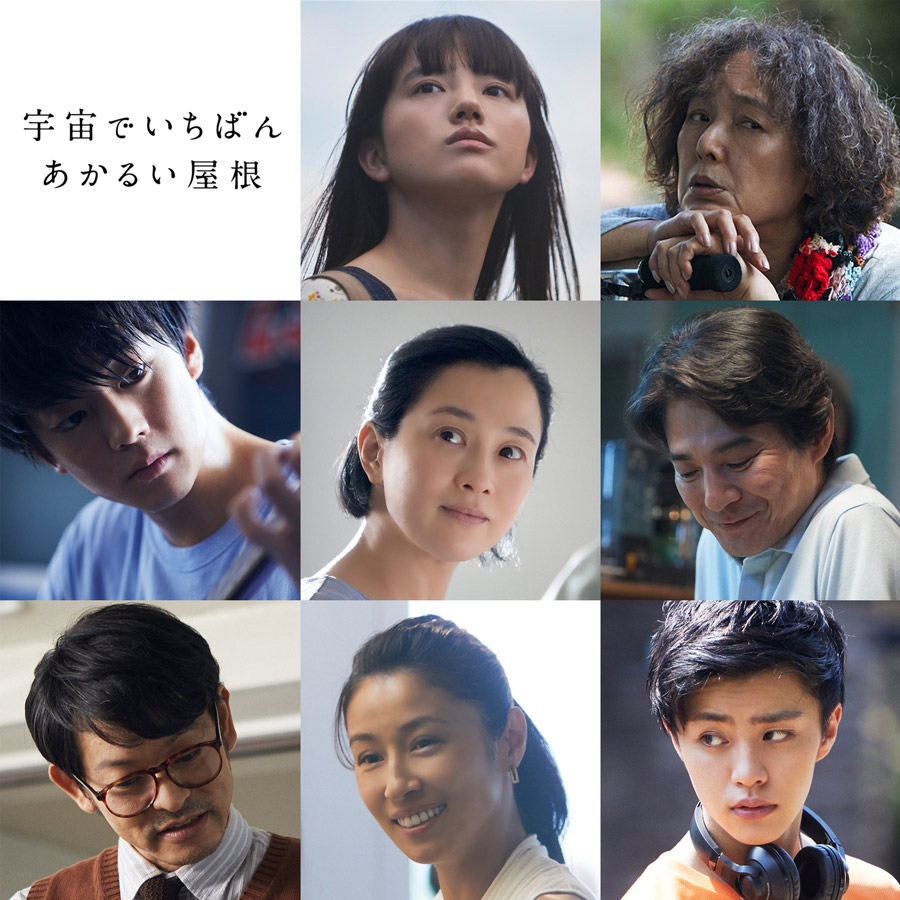![[CINEMORE ACADEMY Vol.3] Pre-production edition How to make the movie “The Brightest Roof in the Universe”](https://cinemore.jp/images/ec05ad1d98dd55aec9310f03563a78741035f515393693eb6d4c7bd65d99efd2.jpg)
[CINEMORE ACADEMY Vol.3] Pre-production edition How to make the movie “The Brightest Roof in the Universe”
How are movies "made"?
If you know the origins of movies, watching them will become more interesting. Therefore, CINEMORE is launching a project titled ``CINEMORE ACADEMY'' where creators learn how to make movies, and will deliver the ``real'' of film production.
This time, our lecturer will be Toshihide Michito Fujii, the director who revolutionized the Japanese film industry with `` The Journalist '' (19). We will ask him in detail about how he made this movie based on his latest work, ``The Brightest Roof in the Universe,'' which is scheduled to be released in September.
Following the "Planning Edition" and "Screenplay Edition," this time is the "Pre-Production Edition." It is a general term for a wide range of work necessary to determine the direction of a work, such as gathering staff and cast before shooting, location scouting, scheduling, and image sharing. Producer Hiroko Maeda, who was also in charge of producing `` Swallowtail Butterfly '' (1996) and `` Kill Bill '' (2004), will also be in attendance as she was last time.
Those who control pre-production control filmmaking. This time, too, it is full of valuable behind-the-scenes stories and maxims that reflect the beliefs of Director Fujii and PR Maeda. Dive deeper into the depths of filmmaking.
Index
- Distribution companies and managing companies that influence casting
- At an audition, "you can tell the moment you walk into the room."
- Handing over the script itself is a presentation to the actors.
- I would like to decide on the assistant director, cinematographer, and editing engineer as much as possible.
- The importance of ``costuming'', which is the only way to talk thoroughly with the actors
- “Biuchi” to unify the image among staff
- Problems with the “too busy” Japanese film production environment
- The secret of pre-production is "a sense of balance"
Distribution companies and managing companies that influence casting
Q: With the theme of "pre-production" this time, I would like to ask you about the process you go through after the script is written and before filming begins. Last time, we heard that as the script was being drafted, "casting and staffing will also begin at the same time," but who has the decision-making authority?
Fujii: Regarding casting, I think it was at the stage where the producer decided it was okay to show it to the people at the agency. In the case of ``The Brightest Roof in the Universe,'' it was relatively quick.
Maeda: This time, we were able to move smoothly because we started working on the script with Director Fujii early, and the original author Tomoso Nonaka said it was ``very interesting.''
Fujii: However, there is no clear timing when it comes to casting.
For example, in the case of `` Yakuza and the Family '' (released in 2021), the screenwriter had to leave midway through... It was about three months until the start of production, so I finished the first draft in three days and moved on to casting.
Q: That was difficult...
Fujii: I spent three days in a hotel with co-screenwriter Kazuhisa Kodera and finished it all at once. Of course it was difficult, but in the end I was able to write a really good script.
There are patterns like this, so the timing varies, but I think the procedure is casting → stuffing.
Maeda: In my case , in addition to casting and staffing, there is the important work of "investment sales." Sometimes there is a pattern in which we ask for investment after deciding on ``this original work and this person will be the lead role'', but basically it depends on the script. This time, I think that the script was well received by everyone, which led to casting and investment.

Q: I think there are cases like director Fujii, where the script is revised until the last minute, but do you often go to the investment sales or staffing without waiting for the script to be completed?
Maeda: First of all , when producing a movie, there are two companies that you really want to decide on: one is the executive company that will be the leader of the production committee. Simply put, this is the position where you invest the most. And it's a distribution company. There is a pattern of starting production but not having decided on distribution, but I think it's dangerous if we don't decide on an exit.
Fujii: By the way, the distribution of `` Day and Night '' (19) was decided during filming. I was nervous until it was decided.
Maeda: During casting, actors' agencies often ask, ``Where is the distribution?'' When I said that it hasn't been decided yet, everyone looked worried.
Q: I see. When talking about casting, it's a good idea to say that the distributor has already been decided.
Maeda: I see. If nothing has been decided, everyone will be worried about things like, ``In the worst case scenario, it will be shelved,'' or ``When will it be released?''
Q: In Hollywood, there are excellent scripts that have not been made into movies, called the "blacklist." Even in Japan, are there cases where the script is left behind?
Fujii: Yes. Also, producers who often let people sleep create rumors among directors (lol). Among us, we share a list of people who won't let us write a lot of things.
Maeda: That's right, I didn't know that (lol).
Fujii: You know, I secretly did it so the producer wouldn't find out (lol).
At an audition, "you can tell the moment you walk into the room."

